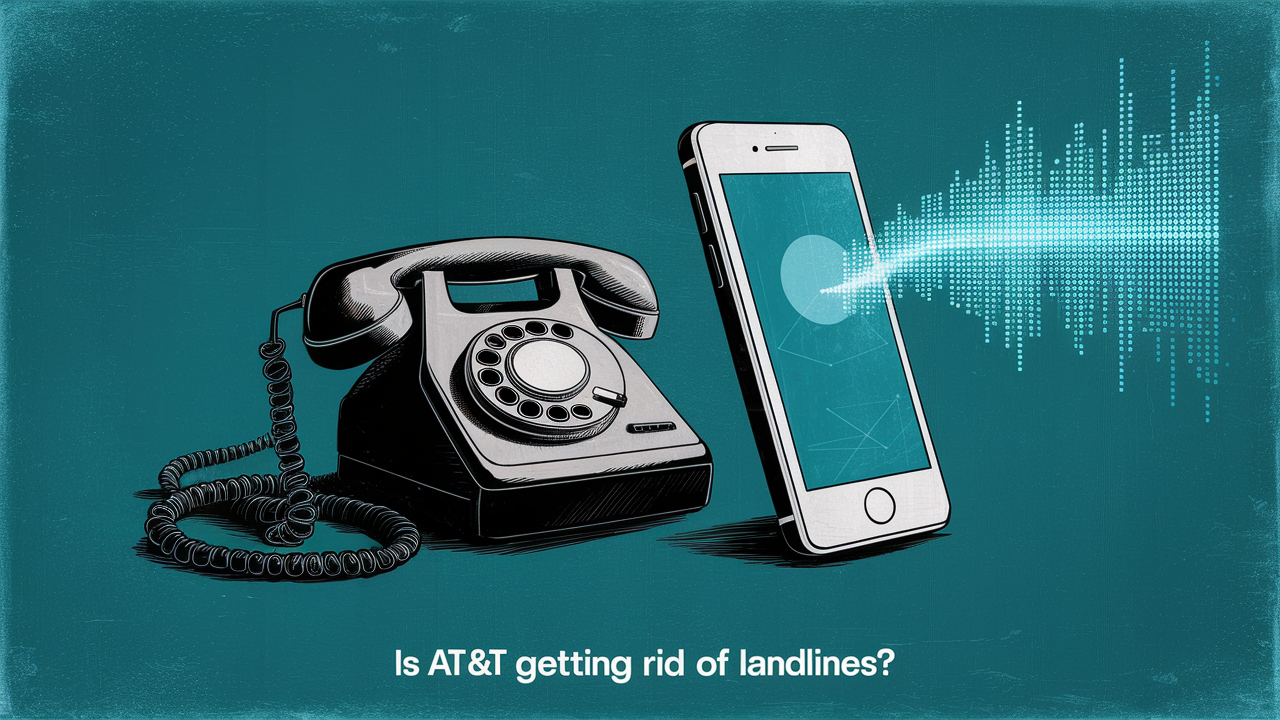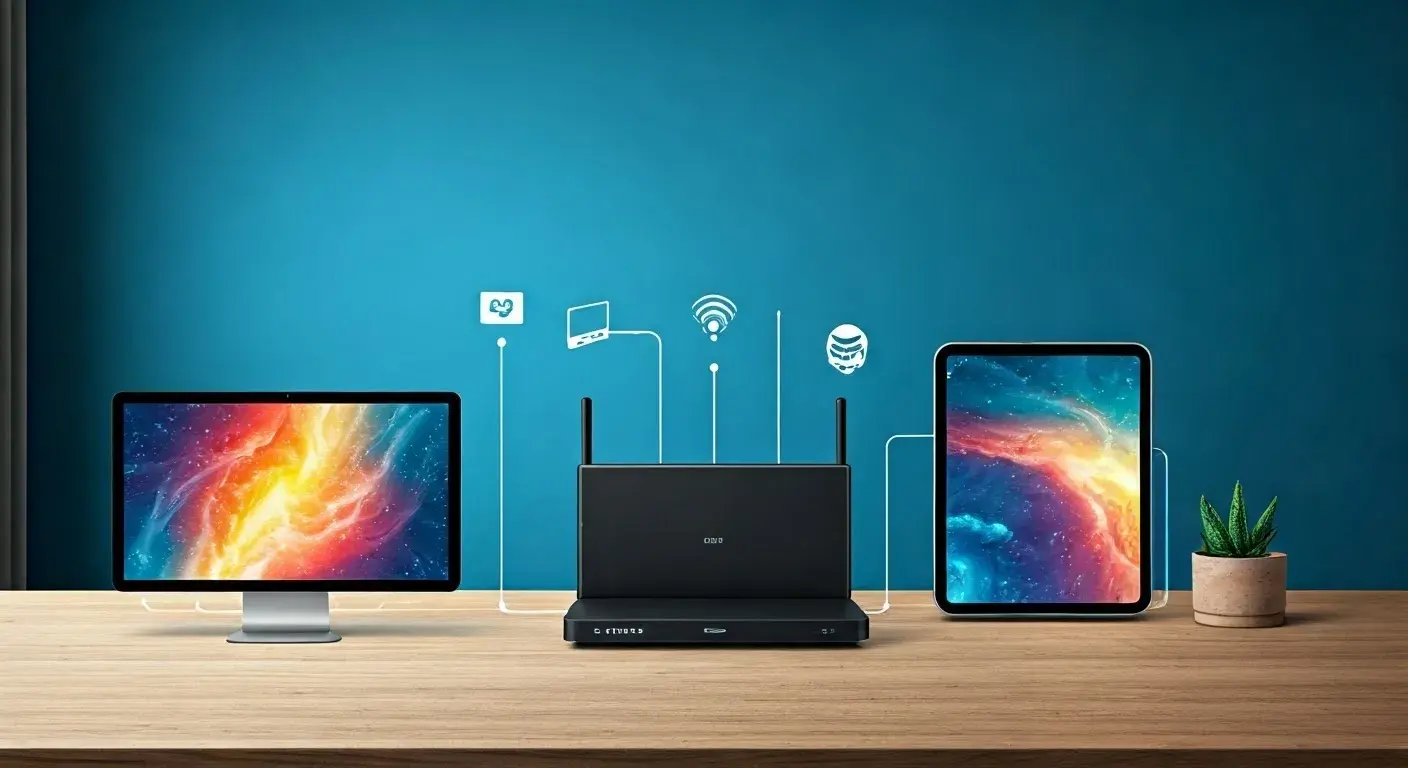Is AT&T getting rid of landlines?

With new technologies such as VoIP getting into the market, more and more people are questioning whether AT&T is going to eliminate the usage of old-fashioned landlines. The implications for customers can be discussed as follows:
Telephones with wires have been used in the United States for many years, providing the population with a tool that enables people to call each other and get online. However, with the increasing usage of mobile phones and VoIP services, traditional copper wire-based wired telephone connections are getting less popular. This has left many people asking – Is AT&T planning on eliminating the use of landlines?
The Short Answer
AT&T has been very clear in their statement that they are not discontinuing their landline services at the moment. Yet, they have embarked on strategies that will ensure they transfer customers from the old-fashioned landline to the latest technologies. There has been a gradual shift in that AT&T is no longer aggressively promoting landline services, though investment continues to be directed toward increasing the size and improving the quality of wireless networks and fiber-based Internet/TV services. They have also pulled out the landline services in some markets.
Hence, although current legacy devices such as traditional landlines would remain a product offered by AT&T shortly, it is not a sector that the company is likely to market heavily in the future. It is all but clear that the plain-old telephone service from Ma Bell is slowly moving out of the scene.
Is This Why AT&T Is Eliminating Home Phones?
There are a few key reasons why AT&T Internet is moving away from investing in copper-based landline networks.
1. Dropping landline usage rates: Fixed line telephones, both for residential andbusinesss have been on the decline for more than a decade. As of the data gathered from the Federal Communications Commission or FCC established in the United States in 2021, more than three out of every five households in the country do not have a landline. With all the mobile phones being able to offer the same and even more than the traditional landlines, many consider the post office outdated technology.
2. Increasing costs: Heavy investment in fixed-line telephones and networks all over the country is becoming more and more costly as few customers are remaining. It is also expensive to modify old landlines to meet the current needs while at the same time not generating enough revenue to support such efforts.
3. Future focus: Concerning its strategy, AT&T has long-term goals of driving economic value by aggressively growing 5G and fiber-optic internet/TV services to consumers and businesses. They feel that 5G is the next big thing in terms of technology, while the use of landlines is becoming less and less significant.
How is AT&T moving from the traditional wireline business?
While not eliminating landline offerings (yet), AT&T has been transitioning away from the technology in subtle and not-so-subtle ways.
- Discontinuing landline service in some markets: FCC recently approved that AT&T has the permission to stop offering traditional wire-line phone services for the most part as well as transfer the customers to non-wireline phone plans.
- No more landline installation: Currently, up to February 2022, AT&T no longer sells new basic residential home phone line connections. People are allowed to repair or move their existing landlines only, which indicates that the company controls the distribution of these services.
- Shift in marketing dollars: AT&T targets investments in wireless, 5G, and fiber services as it allocates resources to advertising. They do not offer plain old telephone service to new residents and customers.
- Pushing alternatives: Customer service representatives tend to suggest options such as the AT&T VoIP digital voice service instead of continuing to use plain landline service for clients who are already using this type of service.
- Higher landline prices: This has also pointed to a decline in the usage of AT&T's traditional landlines, where prices have risen more than the inflation rates, another shift from the old telephone technology.
Should Customers With a Landline Telephonic Connection Switch?
For the remaining out there connected with AT&T as a landline subscriber, should you follow the lead of this company’s advice and shift to another of the modern phone services? In many cases, the answer is yes.
- If you bundle home services, switching enables one to benefit from fiber/5G plans that may cost less than having a separate service for the landline, internet, and cable television services. Cable with wireless can also help you save money when you decide to go for wireless Internet services.
- The technology of digital VoIP is similar to plain old telephone service, but it transmits calls over the Internet and may have additional features, and generally, they are cheaper on a per-month basis for a user who does not make a large number of calls.
- When it comes to the first choice of primary household communication in today’s world, cell phones outdo landlines in mobility, functionality, and convenience.
However, for some groups like seniors, remaining on a conventional phone system still makes sense.
- If you have an old, slow, or intermittent connection, it could affect the reliability of VoIP or wireless calling.
- If you do not have a cell phone or have some problems with adopting mobile technologies.
- If the calls made are very minimal for example only making calls very occasionally – then the money that one can save may not be worth the changeover of service.
A glimpse into the future: What does the future hold for AT&T’s landlines?
Although they won’t vanish tomorrow, the future is gloomy for the old dependable landline at the country’s largest telecommunication firm. AT&T would certainly wish the customers to shift onto their suite of newer technologies products.
Nevertheless, with the remnant few households still using their landline phones today, it is unprofitable for wireline players to sustain giant nationwide copper-line networks because the revenue from these customers on an individual basis is insignificant despite the existence of a sizeable absolute number.
As usually happens, the death of the landline will be a long, drawn-out process, with the coup de grace being delivered years in the future once subscriber counts reach their lowest point. This slow change ensures that even those who use plain old voice telephony have enough time to study the shift and make the change seamlessly when ready.
Well then, for most of the folk who continue to use AT&T-connected landlines, the handwriting has to be on the wall. There are no trends to suggest any immediate near-term service disconnection in the region; however, investing in newer technology is undoubtedly the company’s key strategic focus going forward. It probably would be wise to start engaging in actions that will help avoid dependence on this type of service over the next couple of years to avoid being caught up in a situation where service is disrupted in the future.
Upgrade to faster, more reliable AT&T Fiber Internet today! Call us at +1 844-905-5002 and get connected with speeds that keep you ahead.





